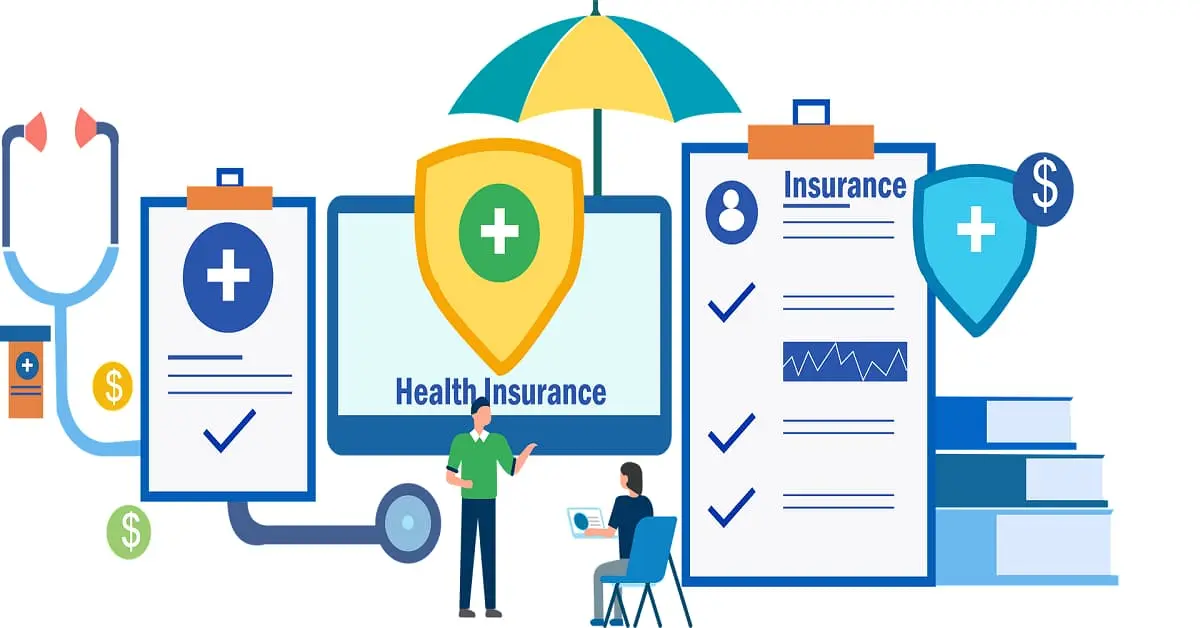Table of Contents
Affordable Health insurance provides an essential aspect of good health, safe management of medical costs, and access to necessary care. However, a lot of misconceptions revolve around when it comes to finding affordable health insurance cloud peoples’ decision-making process. Misunderstandings, misinformation, and myths about health insurance can cause people to delay obtaining coverage or make poor choices regarding their plans. It is a must to separate the myths and know which truths will guide you better about your choices for health insurance.
Myth #1: Health Insurance is Too Expensive for Most People
One of the biggest myths about Affordable Health insurance is that it’s too expensive for everyday families or individuals. Although the cost of premiums does vary depending on such factors as income, location, and the type of plan you choose, health insurance is often more affordable than many may believe.
Workers Compensation Insurance, often referred to as the ACA, has been providing health insurance to many people in the United States at affordable rates, many of these through health insurance marketplaces. Others pay for premiums through subsidies and tax credits. Low-cost or even free coverage may also be available for those with low income and families under Medicaid.
It may be so, but that doesn’t mean you don’t qualify for assistance. There’s a good chance that subsidies or state-based programs will make your premium affordable. Don’t assume you are ever too old, too young, or too low-income to qualify for assistance.
Myth #2: If I’m Healthy, I Don’t Need Health Insurance
People, at times, believe that since they are young and healthy, and rarely go to the doctor, they do not need health insurance. Such presumptions are dangerous because they leave their finances severely exposed in case of a harmful accident or unexpected sickness. Accidents, emergencies, and sudden illnesses can happen at any moment regardless of your current state of health.
But even if you’re healthy, a serious car accident or health issue—such as a broken bone, appendicitis, or an unexpected infection—could lead to costly medical bills that would be crippling without insurance. In all probability, you’ll need some form of medical treatment at some time, and health insurance helps pay for medical treatment.
Myth #3: All Health Protection Strategies Are Similar
Many believe that all health insurance plans are pretty much the same, with little variation between different ones when it comes to cost. This is a very common myth. Affordable Health insurance plans are very different in terms of coverage, provider networks, deductibles, and out-of-pocket costs.
There are various Affordable Health insurance plans: Health Maintenance Organization, Preferred Provider Organization, and Exclusive Provider Organization, which differ primarily in the network of doctors and hospitals they work with, and often in their approaches to referrals and access to specialists. Finally, the degree of coverage can differ according to the deductible, copayments, and coinsurance that are chosen.
This depends on your needs: You might require having access to many doctors and specialists, or simply prefer a low-premium plan. The best strategy is to compare all the plans cautiously so that they can be fitting to meet your healthcare needs and budget.
Myth #4: I Can’t Get Health Insurance if I Have a Pre-existing Condition
Whereas before, pre-existing conditions excluded anyone from their insurance coverage or the person would be charged higher premiums by the insurance companies, the Affordable Care Act reversed the entire scenario to the point that it is no longer lawful to deny coverage to anyone with pre-existing conditions or charge them extra premiums.
This means that with or without diabetes, asthma, heart condition, or whatever, you can acquire Affordable Health insurance coverage. No medical history will lead insurance companies to deny a person coverage, and they cannot charge a higher premium because that individual has a pre-existing health condition.
Myth #5: Affordable Health Insurance Covers Everything
Most Affordable Health insurance plans provide a long list of services, but no health insurance plan provides for everything. Most plans will cover a range of essential services including doctor visits, preventive care, hospitalizations, and prescription drugs, but these services usually come with limits or exclusions. Some services may be only covered after a deductible or may be excluded from coverage altogether.

Many Affordable Health insurance policies do not include cosmetic surgeries, elective procedures, or any experimental treatments. Other services, such as mental health, dental, vision, and prescription medication, may also have provisions.
Before you sign up for a plan, carefully read the summary of benefits so you know what is covered and therefore what, if anything, you’ll need or have to pay for out of pocket.
Myth #6: I Can Always Get Affordable Health insurance When I Need It
Most people mistakenly believe that they can enroll in health insurance at any point; however, this is often not true. Generally, health insurance opens up and allows one to enroll during limited periods in a calendar year, for example, only when open enrollment for plans bought through the Health Insurance.
If you don’t enroll during open enrollment and therefore aren’t eligible for an SEP, then you have no choice but to wait until the next open enrollment period rolls around before you can enroll in a plan. This is why it is hugely important to keep track of the deadlines for enrollment and what time of the year you might make changes to your coverage.
Myth #7: Affordable Health insurance is Just for Families
Some individuals believe that Affordable Health insurance is for families with children or a married couple. Well, however, health insurance is a need for every individual, whether single, young, or old. Most health insurance plans, especially the individual plans under the ACA marketplace, are specially designed to suit the single individual.
For example, the health care of young adults can be insured on their parents’ insurance up to age 26; after they have aged off, they have to obtain insurance for themselves. For older adults, health care continues to play the same role in safeguarding against medical expenses as age progresses. More importantly, some Affordable Health insurance such as Medicaid, is even offered for low-income families regardless of family structure.
Myth #8: If I’m Self-Employed, I Can’t Get Affordable Health Insurance
Many self-employed people are concerned that because of their income status or because there is no employment-based coverage to start with, they won’t be able to get affordable health insurance. Fortunately, it’s not true, and self-employed workers also have access to several options for getting affordable health insurance.
If you have your own business, you can get private insurance through the Health Insurance Marketplace. Also often eligible for subsidies that may reduce the cost of coverage premiums based on income, self-employed individuals are sometimes eligible for the Medicaid program if they make under the threshold set by their state.
For everyone else, independent contractors, freelancers, and small business owners, private insurance companies provide several plans targeting different price points. Health insurance premiums may also be deducted by many individuals who are self-employed and therefore it proves cheaper in the long run.
Myth #9: I only need health insurance in case of serious illnesses.
Another very common myth is that you only need health insurance in case you contract a bad, serious illness, such as cancer or a heart attack. In reality, health insurance covers preventive care too. Most health insurance plans include annual check-ups, vaccinations, screenings for such things as cancer, diabetes, and heart disease, and other preventive services at no additional cost to you.
By receiving regular check-ups and preventive care, you can catch health issues early before they get worse and more costly to treat. Health insurance helps you access these services, which can ultimately save you money by preventing more expensive treatments in the future.
Myth #10: If I Don’t Use Affordable Health insurance, I’m Wasting Money
Other people do not take affordable Health insurance because they believe that if they are rarely visiting the doctor, it is a waste of money. However, health insurance is a protection plan for your purse when disability or any medical condition strikes. Even when you are healthy and rarely going to the doctor, this protection of your wallet from calamity or inevitable illness is priceless.
For example, an accident not forecasted or an unanticipated illness can mean medical bills which may be several times over what you would have paid for the premiums. Health insurance allays the risks and ensures you peace of mind, knowing that the eventuality has been catered for by the insurance in case something goes wrong.
Conclusion
There are so many myths associated with health insurance that they scare people off from health coverage or selecting the right option for their needs. By discrediting such myths, we hope to have enlightened you on your best options for health coverage. Be it a healthy individual, a self-employed entrepreneur, or worried about the cost, there is much to be had by securing the kind of coverage needed at a price one can live with.
The most important thing to remember here is that health insurance is an investment in your well-being and financial security. Having read this, you are informed of the truth behind these myths and will make a well-informed decision about your health coverage that you will not regret in the future.
FAQS
What is the meaning of affordable health insurance?
Affordable health insurance is described as health coverage that is reasonably priced and accessible, while still providing basic health care benefits without excessive financial strain. Generally, the provision of affordable health insurance aims at safeguarding against hefty medical expenses. This means the healthcare services visit to a doctor or stay in the hospital, taking prescription drugs, and preventive care are financially accessible to a broad range of individuals and families.
What are the two most general types of health insurance plans?
Before selecting a health insurance plan for yourself, your family, or even your employees, you need to know what types are available. Some of the popular types of health insurance policy options are Preferred provider organization (PPO) plans. Health maintenance organization (HMO) plans
What’s the best app to compare health insurance plans?
Health Bird app: Apply easily in one place using the Health Bird app to apply for an ACA plan. Health Bird streamlines the process so that you can confirm eligibility, compare options, and get an estimate of potential subsidy savings all in one place.
Also Read
